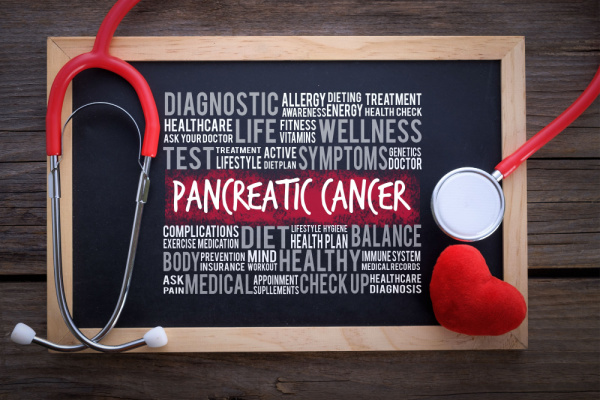November is Pancreatic Cancer Awareness Month, and November 20 is World Pancreatic Cancer Day.
World Pancreatic Cancer Day is a time for communities around the globe to come together to renew their dedication and help raise awareness for this deadly disease. It is a global day of action that provides a unique opportunity to make sure voices are heard.
According to the National Foundation for Cancer Research, even in the company of other vicious diseases, pancreatic cancer is particularly nasty: The one-year relative survival rate is 20% and the five-year rate is 7%. It ranks third in cancer-related deaths in the United States, and it is expected that over 55,000 Americans will be diagnosed this year alone. It’s deadly because it is stealthy.
While testicular cancer presents with a lump and skin cancer with a lesion, because the pancreas is buried so deeply within the body, the initial signs of pancreatic cancer are often overlooked or misdiagnosed. With Pancreatic Cancer Awareness Month, and the overall message is for the populace to not take mysterious symptoms lightly.
The World’s Toughest Cancer
“It is the world’s toughest cancer,” admits Virginia Manax, M.D., chief medical officer of the Pancreatic Cancer Action Network (PanCAN) and one of the nation’s loudest advocates for pancreatic health. “And it takes a lot of imaging and a lot of tests to detect it. Moreover, there are no tests for early detection. When it presents an opportunity to be detected, it’s usually at an advanced state.”
That “advanced state,” she explains, most often announces itself as a yellowing of the skin and eyes, a condition known as jaundice. A tumor in the head of the pancreas can cause narrowing of the bile duct and block the bile (a fluid that aids digestion) flowing from the gallbladder and into the small intestine. Blockage of the duct causes a buildup of bilirubin, an orange-yellow pigment formed in the liver by the breakdown of hemoglobin and excreted in bile that then leaks into the body, causing the discoloration. It is at this point, however, that the cancer has begun to spread and is in its deadliest stage.
But this only after a host of far less obvious clues become manifest: belly or back pain, diabetes, nausea and vomiting, uneven fat distribution, poor appetite and weight loss. The key, says Manax, is how quickly these signs present, how long they persist and how dramatic they are. For example, a person’s weight will naturally oscillate from month to month, but a sudden drop of 15 pounds or more for no apparent reason is cause to see your doctor.
Manax is quick to add, however, that while the signs and symptoms of pancreatic cancer are surreptitious, its risk factors are not. “Age (the average age for a diagnosis is 71), family history, if there is an incidence of chronic or hereditary pancreatitis, smoking, obesity and long-standing diabetes—these are the more familiar risk factors for developing the cancer,” she says.
The Hirshberg Foundation for Pancreatic Cancer Research, along with more than 99 member organizations from more than 40 countries across six continents, are raising awareness and inspiring action. For too long, pancreatic cancer was a neglected cancer, but that’s changing now with initiatives such as World Pancreatic Cancer Day.
World Pancreatic Cancer Day
The World Pancreatic Cancer Coalition (WPCC) organizes awareness campaigns leading up to WOrld Pancreatic Cancer Day on November 20, 2025. Its 2025 initiatives will focus on raising awareness of pancreatic cancer’s symptoms and risks, sharing patient and survivor stories, and promoting early detection to improve survival rates. The WPCC encourages public participation and supports its network of over 110 global member organizations.
Key focus for 2025
- Raise awareness: The WPCC’s primary goal is to increase global attention and understanding of pancreatic cancer, which is one of the deadliest cancers.
- Promote early detection: Awareness campaigns will highlight the symptoms and risk factors to drive earlier diagnosis.
- Share stories: Individuals are encouraged to share their experiences to inspire action and hope.
- Global reach: The Coalition uses its network of 110+ member organizations in 39 countries to create a global dialogue and impact.
You can join in shining a light on this disease – your actions have power. The Hirshberg Foundation’s efforts to eradicate this disease takes the support of communities far and wide. Your participation could make a worldwide impact.
In support of World Pancreatic Cancer Day or in honor of a loved one, make a donation, share the facts about pancreatic cancer on social media or share your story to make a lasting impact. Every year, the Hirshberg Foundation renews our heartfelt promise to never give up in this fight against pancreatic cancer, and together, we can fulfill that promise by celebrating World Pancreatic Cancer Day and raising awareness together!
—
Photo Credit: kenary820 / Shutterstock.com
